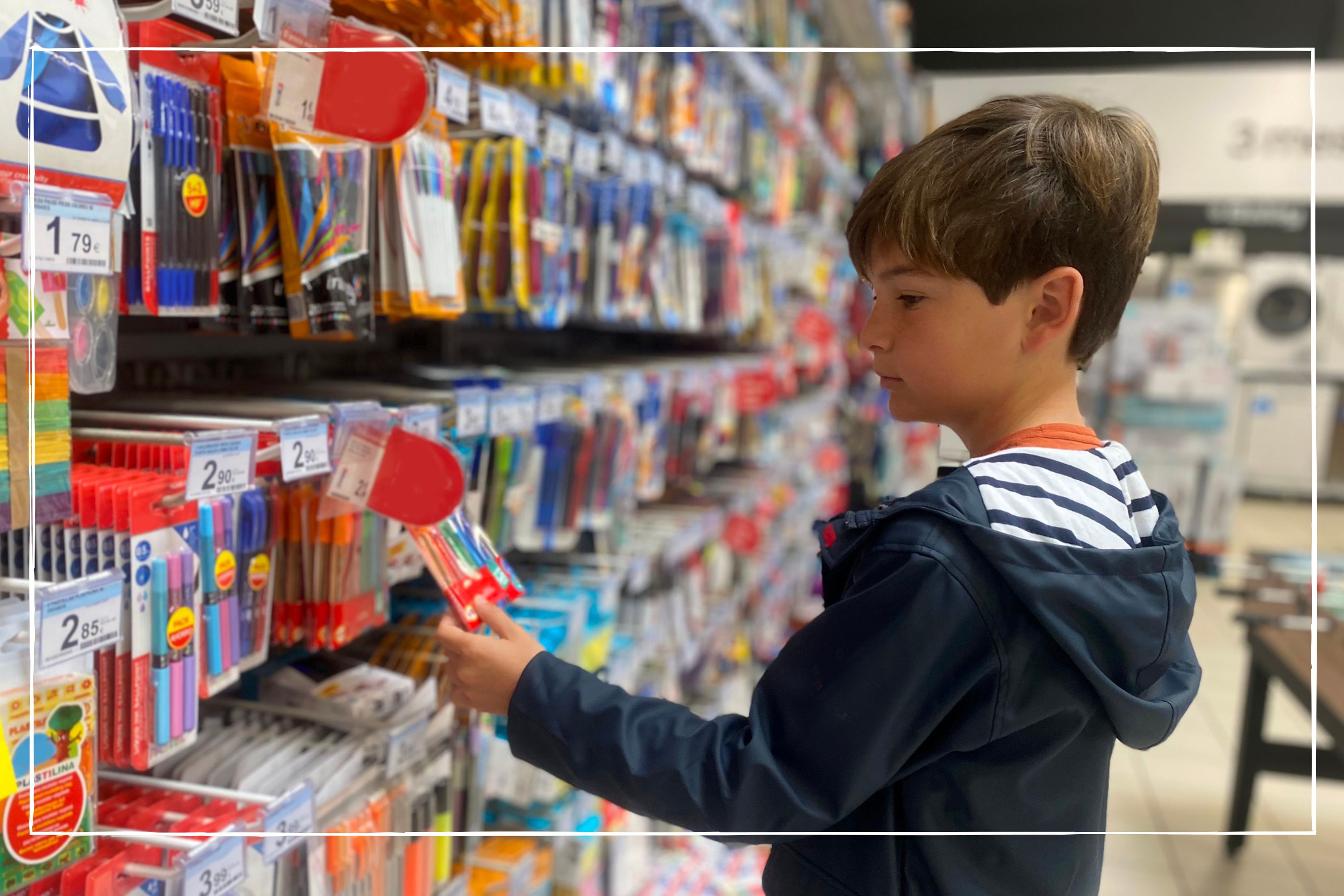Will there be a recession in 2022 and what could it mean for your money?
Unsure whether there will be a recession in 2022, and what it might mean for you? This expert guide explains what you need to know

Following news of soaring inflation, many families will be wondering whether there will be a recession in 2022 and what it means for their family finances.
The Bank of England is predicting the UK will enter a recession later this year – and it will affect everyone. This comes at a time when families are increasingly concerned about how much their energy bills will cost and are researching how to save money as costs rise all around.
A recession means companies will make fewer sales, leading to job losses and businesses going bust. This in turn could lead to redundancies and wage freezes which will mean people spend less, with many struggling to pay their household bills or debts.
It will become more difficult for people to borrow money, and the property market could see price falls too.
Thera Wealth Management director Philip Dragoumis says: “A recession unfortunately is inevitable as the bank is increasing interest rates to tame domestic inflation and to take the heat out of the job market , while high energy prices put the squeeze on consumer income and spending. This will certainly have an impact on our daily lives and our finances.”
Will there be a recession in 2022?
It is likely the UK will fall into recession as we head into the last three months of 2022. While the UK is not technically in recession quite yet, financial pundits have been predicting a recession for several months. But with the Bank of England issuing its own recession forecast, it means it’s pretty much a done deal.
A statement from the bank’s Monetary Policy Committee (MPC) said: “The United Kingdom is now projected to enter recession from the fourth quarter of this year. Real household post-tax income is projected to fall sharply in 2022 and 2023, while consumption growth turns negative.”
GoodtoKnow Newsletter
Parenting advice, hot topics, best buys and family finance tips delivered straight to your inbox.
The warning follows months of soaring inflation, rising interest rates, and the ongoing impacts of both Brexit and Covid.
Ocean Mortgages managing director Stuart Powell says: “These are absolutely shocking predictions from the Bank of England and, if they prove true, will create massive financial issues for huge swathes of people across all sections of the population. The UK economy is officially on red alert and there is sadly a lot of pain in the pipeline for potentially millions of people.”
There are a number of factors that have combined to cause the imminent recession. These include the impact of the pandemic and lockdowns, soaring inflation, and the war in Ukraine.
Rising food, energy and petrol costs, coupled with interest rate hikes, mean many people don’t have spare money to spend and when people spend less, the economy shrinks.
Energy bills are one of the biggest factors too, with consultancy Cornwall Insight warning that the average household could be paying £4,200 a year for fuel by January 2022.
Brexit hasn’t helped either. It’s made it harder for British companies to export goods while removing a large pool of EU labour from the UK. These factors have exacerbated supply chain shortages and hampered trade.
What does a recession mean?
In simple terms, a recession means that a country’s economy is getting smaller. While a healthy economy grows – we produce more, sell more, earn more and spend more – in contrast, a recession means that businesses produce and sell less, which can impact job security and wages, meaning people earn less and spend less too.
The size of a country’s economy is measured by its gross domestic product (GDP), which is the total value of the goods sold and services provided in a country during a 12 month period. In the UK, GDP is measured each quarter by the Office for National Statistics (ONS), taking into account the country’s output, wages, and how much we are spending.
A negative GDP means the economy is in decline .Technically, the country is in a recession if there are two consecutive quarters (a total of six months) of declining GDP. If the recession lasts for three years, a country is said to be in a ‘depression’. The most recent depression was 1929-33, after World War One.
When was the last recession?
The UK last had a recession in 2020 amid the global pandemic, and before that it was 2008-09.
The most recent recession in the UK was in 2020 and was mainly caused by the pandemic. The stock market started to fall in February and March and then people stopped spending when lockdowns began from March onwards. However, the government’s furlough scheme went some way to stem job losses.
Different factors caused the 2008-09 recession. Cheap credit and lax lending standards had fuelled a housing bubble which eventually burst. The housing market and banking sector bore the brunt of the fallout, with house prices falling about 15% and banks including Royal Bank of Scotland, Lloyds TSB and HBOS needing to be bailed out by the government. It took five years for the UK economy to get back to the size it was before the crisis.
There was another recession in the early 1990s. The cause of which was different again. It was primarily caused by high interest rates, falling house prices and an overvalued exchange rate.
How will the recession affect me?
During a recession the economy shrinks, companies make fewer sales, wages freeze, workers lose their jobs, stock prices fall, people decrease their spending, and the country’s overall economic output declines.
The 2022 recession won’t affect everyone equally – it’s likely to widen the gap between the rich and poor. People with a secure income, savings and diversified investments will fare much better than those who have been just about managing from payday to payday.
The high street could be hit hard with retailers closing down, while it could become harder to find a new job or negotiate a pay rise.
How can I protect my family's finances during a recession?
While there’s nothing individuals can do to stop the recession happening – there are things you can do to prepare your finances.
Firstly, take a realistic look at your household budget and see if you can identify how to save money or how to make some extra money. This might mean ditching subscriptions such as Amazon Prime or gym memberships, or switching to a cheaper supermarket such as Lidl or Aldi. By reducing how much you spend and maximising the money you earn, you can try to put some money into an emergency fund should you need it. If you are able to save some money, see if you qualify for the government’s Help to Save scheme to give your savings a boost.
Joshua Gerstler, chartered financial planner at The Orchard Practice, says: "One of the first things we try and incorporate into a financial plan is an emergency fund. This is usually three to six months’ worth of outgoings held in a bank account which can be easily accessed when needed. Whilst in recession, there can be job losses, and having money you can access whilst you are not receiving a pay cheque can be invaluable."
According to the Resolution Foundation, around 1.3 million families have no savings to fall back on, and more than a quarter of households would struggle to pay their bills a month after losing their income. If you’re one of them, you might want to consider buying income protection insurance. This type of cover protects you from loss of earnings due to illness or unemployment.
A recession is not the time to take big risks with your finances – so hold off on house moves, big-ticket purchases or quitting your job on a whim.

Emma Lunn is a multi-award-winning journalist who specialises in personal finance and consumer issues. With more than 18 years of experience in personal finance, Emma has covered topics including all aspects of energy - from the energy price cap to prepayment meter tricks, as well as mortgages, banking, debt, budgeting, broadband, pensions and investments. Emma’s one of the most prolific freelance personal finance journalists with a back catalogue of work in newspapers such as The Guardian, The Independent, The Daily Telegraph, the Mail on Sunday and the Mirror.
-
 How to save money: 28 family-friendly money-saving tips for mums and dads
How to save money: 28 family-friendly money-saving tips for mums and dadsUnderstanding how to save money is key to limiting the impact of rising costs as much as possible
By Sarah Handley
-
 14 hidden benefits of your Amazon Prime membership
14 hidden benefits of your Amazon Prime membershipWe reveal the less-obvious perks of a Prime membership that will help you get the most value out of your subscription fee
By Rachel Wait
-
 14 surprising ways to spend your Tesco Clubcard vouchers - from restaurants and cinema passes to mini breaks and Disney+
14 surprising ways to spend your Tesco Clubcard vouchers - from restaurants and cinema passes to mini breaks and Disney+Tesco Clubcard vouchers can help you cut the cost of everything from groceries and travel to days out and cinema tickets
By Heidi Scrimgeour
-
 How to get Disney+ for free and save up to £79.90 a year
How to get Disney+ for free and save up to £79.90 a yearEven though the streaming giant ended its free trial offering, there are still multiple ways you can get Disney+ for free for up to 12 months
By Sarah Handley
-
 Parents of teens who have just taken their GCSEs urged to check child benefit status ahead of August deadline
Parents of teens who have just taken their GCSEs urged to check child benefit status ahead of August deadlineWith a child benefit deadline looming, some parents could see their payments reduced or stopped altogether - here's why
By Sarah Handley
-
 Parents should hold off buying this back to school staple 'as close to their first day as possible', says retailer
Parents should hold off buying this back to school staple 'as close to their first day as possible', says retailerWith parents turning their attention to kitting their kids out for the new school year, research suggestions which items should be left until the last minute
By Sarah Handley
-
 7 ways to save on back to school essentials, as its revealed parents will spend £2.3 billion in 2024
7 ways to save on back to school essentials, as its revealed parents will spend £2.3 billion in 2024We share ways you can get your child all the bits and bobs they need for the new school year, without breaking the bank
By Sarah Handley
-
 What day is child benefit paid around the bank holiday? Everything parents need to know
What day is child benefit paid around the bank holiday? Everything parents need to knowKnowing which day child benefit is paid when it comes to the bank holiday can help families plan their budgets accordingly
By Sarah Handley